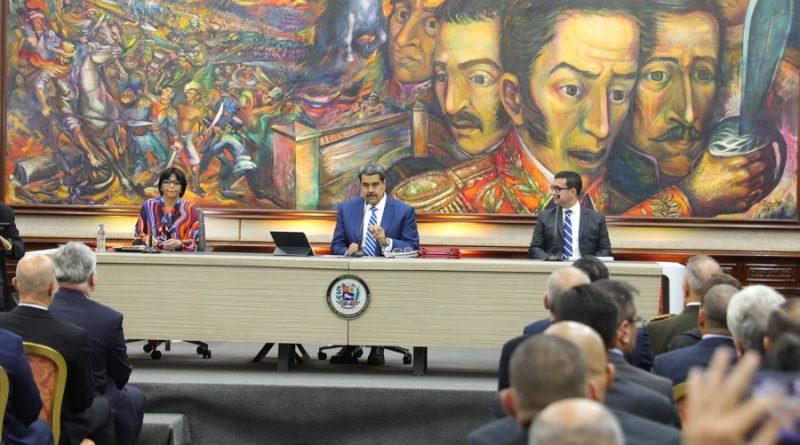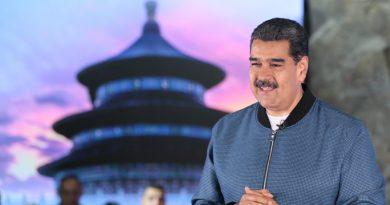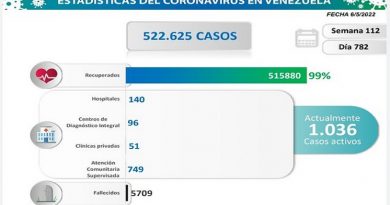The President of the Bolivarian Republic of Venezuela, Nicolás Maduro, leads a working session in order to activate the application of the Organic Law of Special Economic Zones (LOZEE), in order to consolidate a new model of a diversified real economy.
At the meeting that took place in the Boyacá Hall of Miraflores Palace, in Caracas, the Executive Vice President, Delcy Rodríguez, and the National Superintendent of Special Economic Zones, Johann Álvarez Márquez, accompanied the Head of State.
On July 20, 2022, according to Official Gazette No. 6,710, the Organic Law of Special Economic Zones (LOZEE) was promulgated. This legal instrument aims to regulate the creation, organization, operation, administration and development of Special Economic Zones (ZEE).
In addition, it strengthens a model of sovereign economic development and national production that guarantees the productive chain, legal security, social justice and environmentally sustainable means.
This Law, which includes 36 articles, establishes as its central axis the deployment of the productive forces and the defeat of the illegal financial blockade that has affected the Venezuelan economy, in addition to overcoming the oil rentier model of recent years.
In this sense, five ZEEs were created, namely: Paraguaná (Falcón state), Puerto Cabello – Morón (Carabobo state), La Guaira (La Guaira state), Margarita (Nueva Esparta state) and La Tortuga Island (Miranda Island Territory).
According to the LOZEE, the ZEE are defined as a «geographical delimitation that has a special and extraordinary socioeconomic regime, in whose polygons strategic economic activities are carried out under this Law, in line with the objectives established in the Economic and Social Development Plan of the Nation”.
Among its fundamental purposes are the development of a new national production model; which seeks to diversify and increase exports, innovate processes in order to promote production chains and international markets; as well as to strengthen the industrial apparatus and promote the selective substitution of imports.


